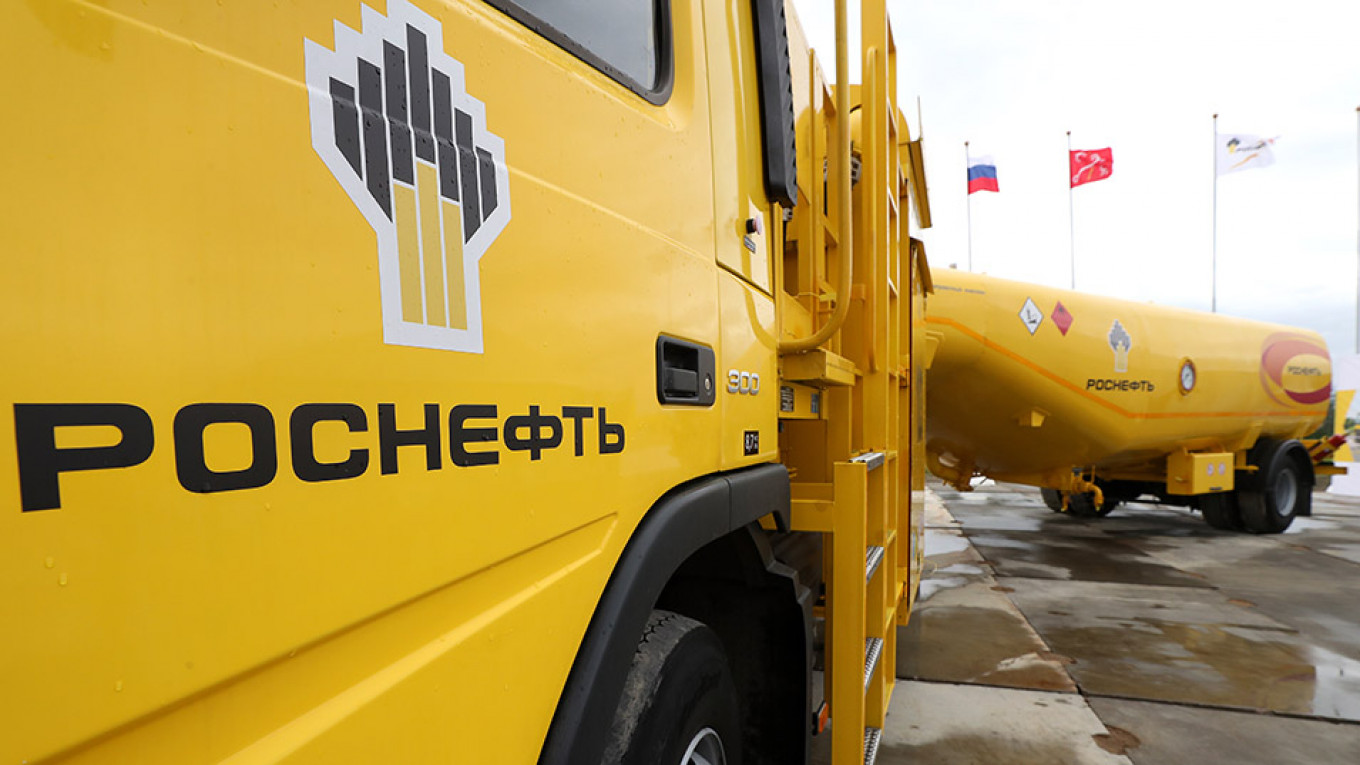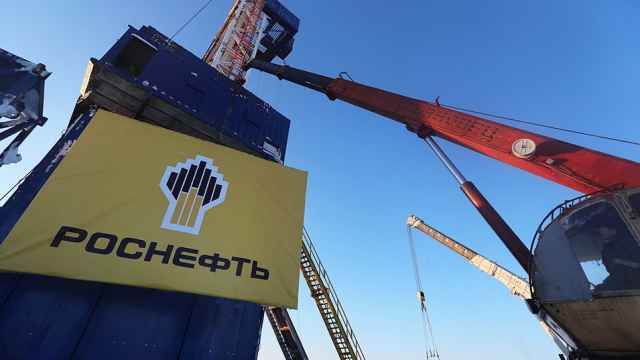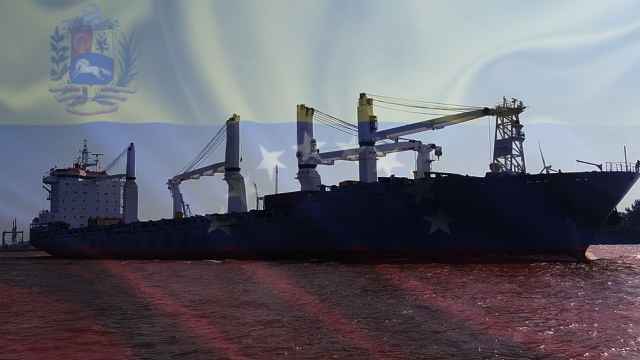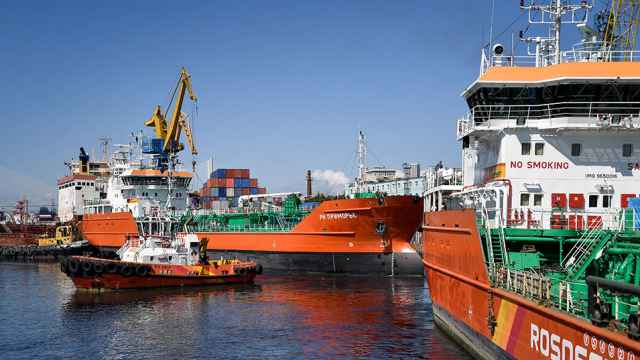Russian state oil major Rosneft has become the main trader of Venezuelan crude, shipping oil to buyers in China and India and helping Caracas offset the loss of traditional dealers who are avoiding it for fear of breaching U.S. sanctions.
Trading sources and Refinitiv Eikon data showed Rosneft became the biggest buyer of Venezuelan crude in July and the first half of August.
It took 40% of state oil company PDVSA's exports in July and 66% so far in August, according to the firm's export programs and the Refinitiv Eikon data, double the purchases before sanctions.
Three industry sources said Rosneft, which produces around 5% of the world's oil, is now taking care of shipping and marketing operations for the bulk of Venezuelan oil exports, ensuring that PDVSA can continue to supply buyers.
Rosneft used to resell volumes it bought from PDVSA to trading firms and was less involved in marketing.
Now it has started supplying some PDVSA clients — Chinese and Indian refineries — while trading houses such as Swiss-based Trafigura and Vitol have walked away because they fear they could breach secondary U.S. sanctions, according to six trade sources.
Trafigura and Vitol declined to comment.
Rosneft and PDVSA did no respond to requests for comment.
Oil accounts for more than 95% of Venezuela's export revenue and Washington has warned trading houses and other buyers about possible sanctions if they prop up Caracas.
The United States and some Western governments have recognized Venezuelan opposition leader Juan Guaido as the country's rightful head of state and are seeking to oust the current socialist President Nicolas Maduro.
A State Department spokesman said the United States "has put foreign institutions on notice that they will face sanctions for being involved in facilitating illegitimate transactions that benefit ... Maduro and his corrupt network.
"We will continue to use the full weight of U.S. economic and diplomatic power to complete the peaceful transition to a once-again free, prosperous and stable Venezuela."
Moscow is one of Maduro's closest allies and has provided military support to his government as well as billions of dollars in loans and equipment.
"Rosneft has been dealing with Venezuela's crude directly, fixing vessels and offering it to end users", a source with an oil trading firm said.
Rosneft is not in breach of U.S. sanctions because it takes oil as part of debt servicing agreements after lending Caracas money in previous years.
PDVSA lowered its outstanding debt to Rosneft to $1.1 billion by the end of the second quarter this year from $1.8 billion at the end of the first, the Russian company said Wednesday.
The sources said most deals between the two do not involve cash. Those that do are processed in euros rather than in U.S. dollars to cover Venezuela's debt to Rosneft.
Russia and China have called U.S. sanctions against Venezuela unilateral and illegal.
Last week, Washington imposed new sanctions on Venezuela, threatening to take measures against any firm "materially assisting" Maduro's government.
Supertankers to Asia
According to PDVSA's loading export schedules, Rosneft has chartered four super-tankers (very large crude carriers or VLCCs) and three smaller Suezmax tankers for Venezuelan crude oil loadings in the first half of August.
All operations are being conducted by Rosneft's trading office in Geneva, according to three trading sources.
Rosneft has been selling Venezuelan crude to two main destinations — China and India — according to the sources, PDVSA's loading data and Eikon Refinitiv shipping data.
Rosneft delivered two super-tankers with 280,000 tons of oil each to Shandong in eastern China in July and August, and the oil went to an independent refinery, according to Refinitiv crude analyst Emma Li and two trading executives.
This is unusual, because oil has been imported only by state giant Petrochina under term contracts with PDVSA.
Rosneft delivered a separate cargo of 140,000 tons to a state-run oil firm, also to Shandong, in mid-August, Refinitiv's Li said.
The new sales came after Rosneft stepped up marketing efforts in May. It visited several independent refiners in Shandong, said a purchasing executive with one independent refiner who met Rosneft officials.
Rosneft has also become an active supplier of Venezuelan crude oil to India. The company has increased Venezuelan oil sales to India's refiners Nayara Energy, which it partly co-owns, and Reliance this year. As a result the refiners decreased direct purchases from PDVSA.
Nayara Energy and Reliance declined to comment.
According to data from OPEC, Venezuelan oil output has collapsed to around 0.7-1.0 million barrels per day (bpd) from as much as 3 million at the turn of the century due to a lack of investments and sanctions.
The United States, India and China were Venezuela's biggest customers prior to the sanctions.
A Message from The Moscow Times:
Dear readers,
We are facing unprecedented challenges. Russia's Prosecutor General's Office has designated The Moscow Times as an "undesirable" organization, criminalizing our work and putting our staff at risk of prosecution. This follows our earlier unjust labeling as a "foreign agent."
These actions are direct attempts to silence independent journalism in Russia. The authorities claim our work "discredits the decisions of the Russian leadership." We see things differently: we strive to provide accurate, unbiased reporting on Russia.
We, the journalists of The Moscow Times, refuse to be silenced. But to continue our work, we need your help.
Your support, no matter how small, makes a world of difference. If you can, please support us monthly starting from just $2. It's quick to set up, and every contribution makes a significant impact.
By supporting The Moscow Times, you're defending open, independent journalism in the face of repression. Thank you for standing with us.
Remind me later.







